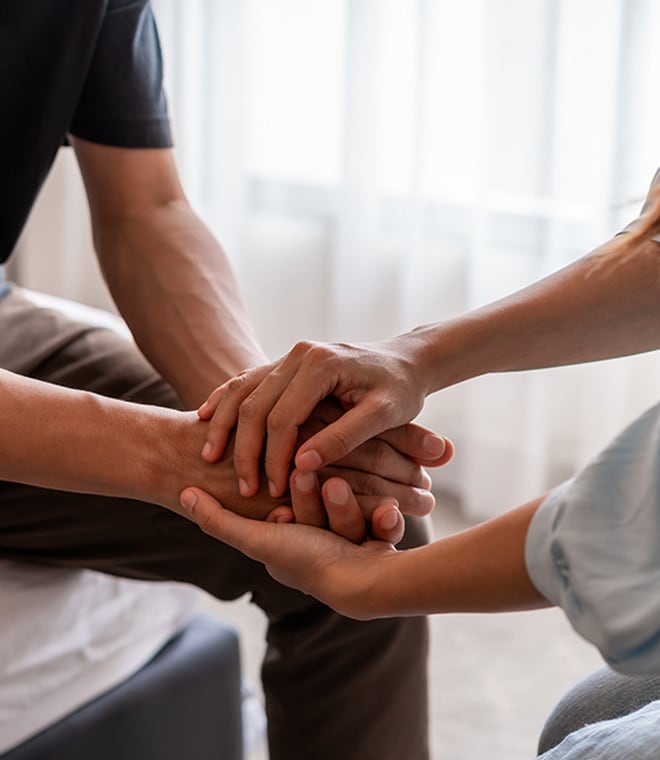Health
How do you get genital warts?
By Jenilee Matz, MPH Mar 20, 2024 • 5 min
Genital warts are caused by an infection with human papillomavirus (HPV). This is the most common sexually transmitted infection (STI) in the U.S. However, not everyone who experiences an HPV infection will get genital warts. Here you’ll learn how you get genital warts and how you can reduce your risk.
What causes HPV?
HPV is a virus. There are about 100 different types of HPV. Some types can cause cancer, while a few other types can cause genital warts. Note that the types of HPV that cause cancer are not the same types that cause genital warts.
How is HPV transmitted?
HPV is spread through oral, vaginal or anal sexual contact with a partner who is infected with the virus. It’s possible to spread or become infected with HPV even when you cannot see the warts. Genital warts may not appear for years after you have sex with someone infected with HPV. This can make it difficult to know when you first became infected.
Is HPV sexually transmitted?
Yes, HPV is sexually transmitted. In fact, almost all sexually active people will become infected with some type of HPV during their lives.
Can you get HPV without having sex?
Yes, you can get HPV without having sex. Though it is uncommon, you can get HPV through genital contact without having sex. In rare cases, an infected woman can pass HPV to her baby during vaginal childbirth. However, it’s important to understand that genital warts are almost always spread through oral, vaginal or anal sex.
Is HPV contagious?
Yes, HPV is contagious. HPV is spread through skin-to-skin contact during sex.
What are the symptoms of genital warts?
Genital warts are small, flesh-colored or pink bumps. Some may be so small that you cannot see them. The warts may be flat or raised and look like cauliflower. They do not always cause symptoms, but they may cause itching, burning or tenderness in some cases. They can also cause bleeding with intercourse.
Women may have vulvar warts or vaginal warts on the labia or cervix or around the anus. Men may experience warts on the penis, scrotum (the sac that contains the testicles), groin or around the anus. Genital warts can also form in the mouth or throat if you’ve had oral sexual contact with an infected person.
Is genital warts herpes?
No, genital warts are not the same thing as herpes. Genital warts and herpes are caused by different viruses. Genital warts are caused by HPV, whereas herpes is caused by herpes simplex viruses or HSV.
How can you lower your risk of genital warts?
Limiting the number of sexual partners you have and using latex condoms each time you have sex can reduce your risk of genital warts. Abstaining from sex is the most effective way to prevent genital warts. The HPV vaccine may also prevent certain types of HPV that can cause genital warts. The Centers for Disease Control and Prevention (CDC) recommends HPV vaccination in males and females at age 11 or 12, ideally before having any sexual contact.
If you have genital warts, see your healthcare provider. They can often diagnose the warts by looking at them. Genital warts can resolve on their own or you may need treatment from your healthcare provider. However, keep in mind that after treatment, HPV can stay in your body and the warts can come back.
Clinically reviewed and updated March 2024.
Sources:
- https://medlineplus.gov/genitalwarts.html
- https://www.aad.org/public/diseases/a-z/genital-warts-overview?NoAds
- https://www.mayoclinic.org/diseases-conditions/genital-warts/symptoms-causes/syc-20355234?p=1
- https://www.cdc.gov/std/hpv/stdfact-hpv.htm
- https://www.uptodate.com/contents/condylomata-acuminata-anogenital-warts-treatment-of-vulvar-and-vaginal-warts
- https://www.plannedparenthood.org/learn/stds-hiv-safer-sex/genital-warts
- https://www.ncbi.nlm.nih.gov/books/NBK441884/
- https://www.mayoclinic.org/diseases-conditions/genital-warts/symptoms-causes/syc-20355234
- https://medlineplus.gov/hpv.html
- https://www.cdc.gov/std/hpv/stdfact-hpv-vaccine-young-women.htm
- https://www.cancer.org/cancer/cancer-causes/infectious-agents/hpv/hpv-and-cancer-info.html




